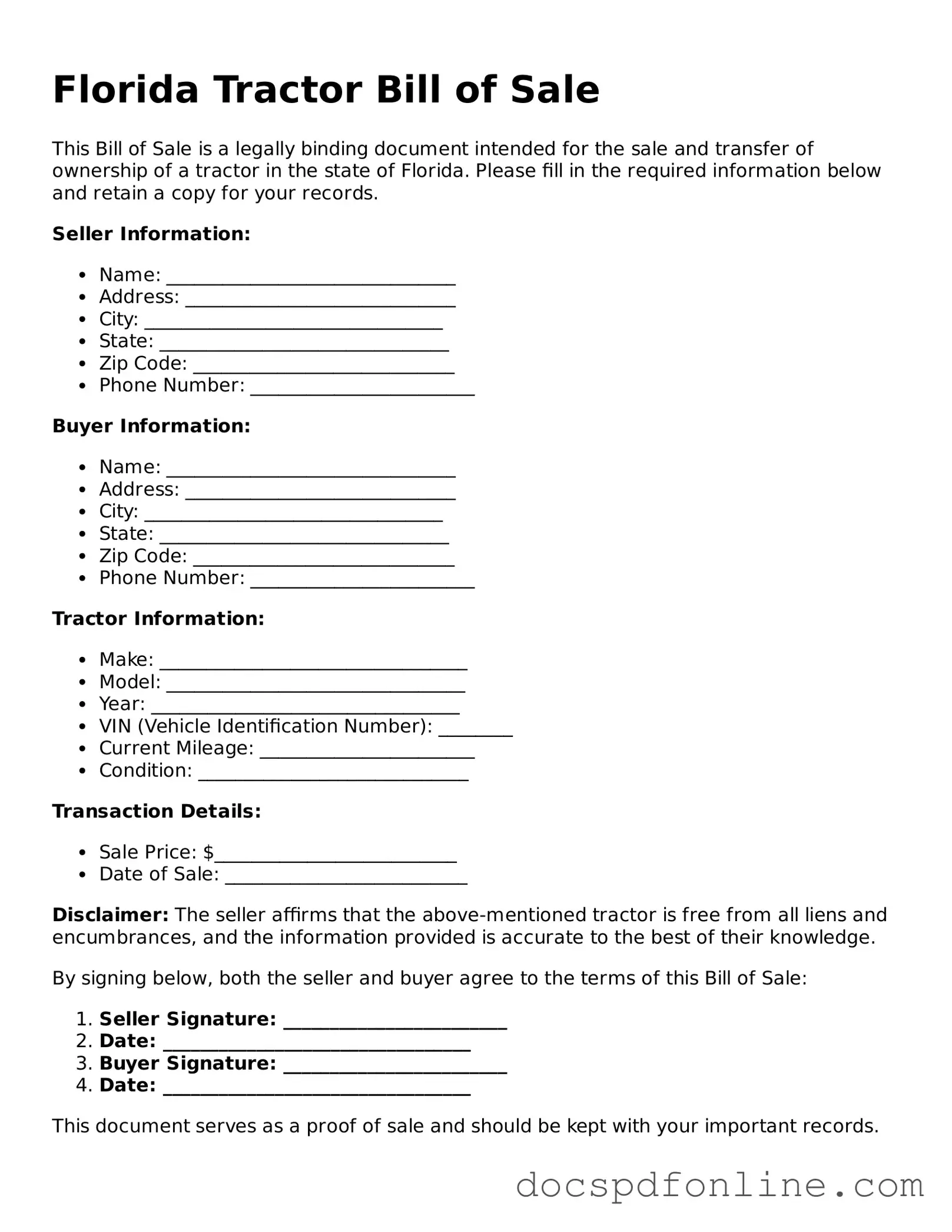Legal Tractor Bill of Sale Template for Florida
The Florida Tractor Bill of Sale is a legal document that serves as proof of the transfer of ownership for a tractor from one party to another. This form captures essential details about the transaction, including the buyer's and seller's information, the tractor's specifications, and the agreed-upon sale price. Properly completing this document ensures a smooth transfer and protects the interests of both parties involved.
Launch Editor Now

Legal Tractor Bill of Sale Template for Florida
Launch Editor Now
Save time — finish this form fast
Finish Tractor Bill of Sale online — edit, save, download made easy.
Launch Editor Now
or
↓ PDF File
